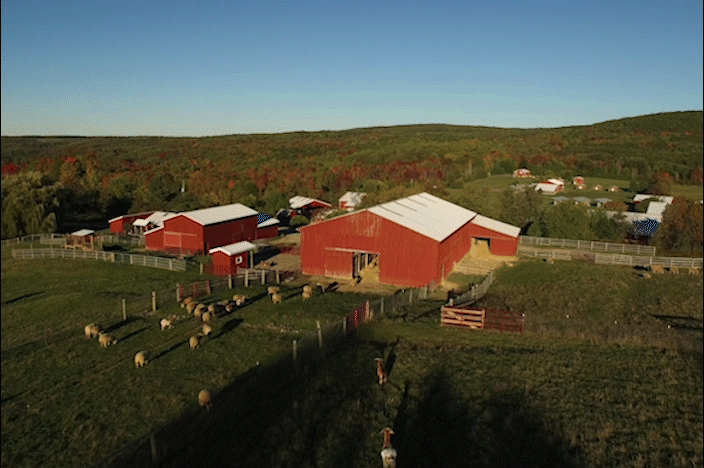Animal Agriculture Causes Immense Suffering
-



Photo: Jo-Anne McArthur / We Animals
It hurts animals.
Far from the idyllic pastures shown in ads, factory farms typically consist of large numbers of animals raised in extreme confinement, who undergo painful mutilations and are bred to grow fast and large before being slaughtered at a young age.
Learn More -



Photo: PARALAXIS/shutterstock.com
It hurts our planet.
Animal agriculture produces staggering quantities of waste and greenhouse gases, polluting our land, air, and water and contributing to climate change, land degradation, and the destruction of ecosystems.
Learn More -



Photo: C.Lotongkum/shutterstock.com
It hurts workers and communities.
Employees suffer long hours, are at high risk for mental and physical trauma, and receive nominal pay. Oftentimes, facilities are in low-income communities of color, who experience health ailments due to the toxic practices of agribusiness.
Learn More -



Photo: Matthias Zomer / Pexels
It hurts our health.
The feeds, hormones, and antibiotics used on factory farms put humans at risk for chronic disease, obesity, and drug-resistant bacteria, and pose the threat of major zoonotic disease outbreaks.
Learn More
-



Photo: Jo-Anne McArthur / We Animals
It hurts animals.
Far from the idyllic pastures shown in ads, factory farms typically consist of large numbers of animals raised in extreme confinement, who undergo painful mutilations and are bred to grow fast and large before being slaughtered at a young age.
Learn More -
It hurts our planet.
Animal agriculture produces staggering quantities of waste and greenhouse gases, polluting our land, air, and water and contributing to climate change, land degradation, and the destruction of ecosystems.
Learn More


Photo: PARALAXIS/shutterstock.com
-



Photo: C.Lotongkum/shutterstock.com
It hurts workers and communities.
Employees suffer long hours, are at high risk for mental and physical trauma, and receive nominal pay. Oftentimes, facilities are in low-income communities of color, who experience health ailments due to the toxic practices of agribusiness.
Learn More -
It hurts our health.
The feeds, hormones, and antibiotics used on factory farms put humans at risk for chronic disease, obesity, and drug-resistant bacteria, and pose the threat of major zoonotic disease outbreaks.
Learn More


Photo: Matthias Zomer / Pexels


Our 2020 Impact
Creating Change for Animals


922
farm animals provided healing, life-affirming Sanctuary


22k
students reached through our in-classroom humane education program


85k
advocacy actions taken by our community


17M
social media likes, comments, and shares on our mission messaging


1B
potential aggregate audience reached through op-eds & interviews
Join the Movement
Only by working together can we create a healthy and sustainable future for our planet, and all of the human and nonhuman animals with whom we share it.
-


Eat More Plants
Learn MoreAre you interested in pursuing a compassionate vegan lifestyle? We’re here to help.
-


Take Action for Animals
Learn MoreHelp advance our advocacy efforts by reaching out to government officials and demanding policy changes.
-


Visit Our Sanctuaries
Learn MoreMeet our residents and hear their stories of struggle and survival, which illustrate the harsh realities farm animals face in our food system.
-


Adopt a Farm Animal
Learn MoreNo barn required! Farm Sanctuary’s shelter animals are in need of loving “parents” to sponsor their monthly feed, shelter, and veterinary care costs.
-


Make a Donation
Learn MoreWhen you donate to Farm Sanctuary, you make a difference in the lives of animals—at our Sanctuaries and beyond.
-


Be The Change
Learn MoreCome join a compassionate team of changemakers who are interested in making the world a better place.






